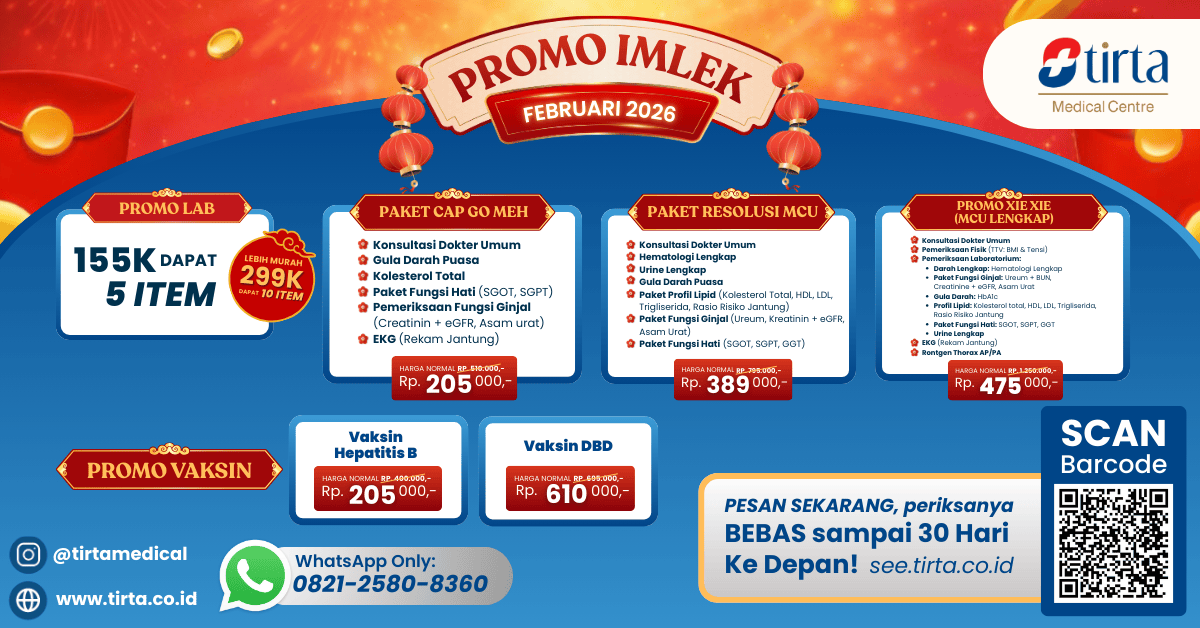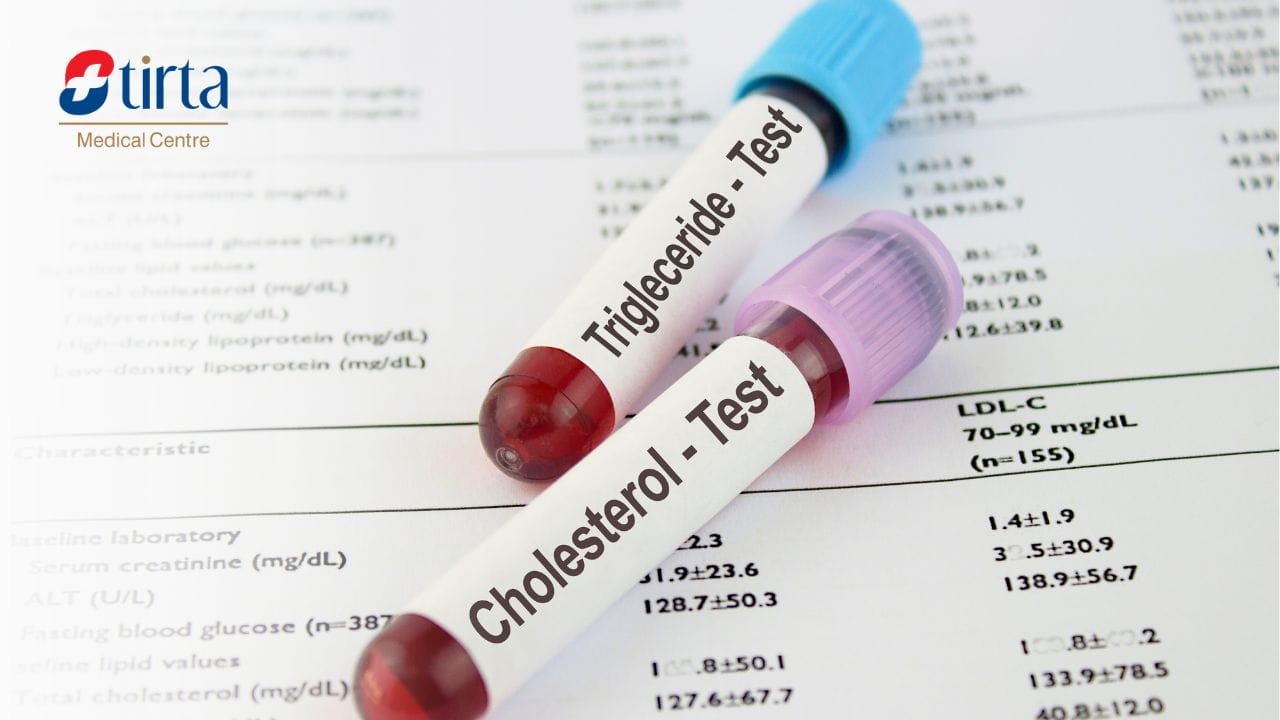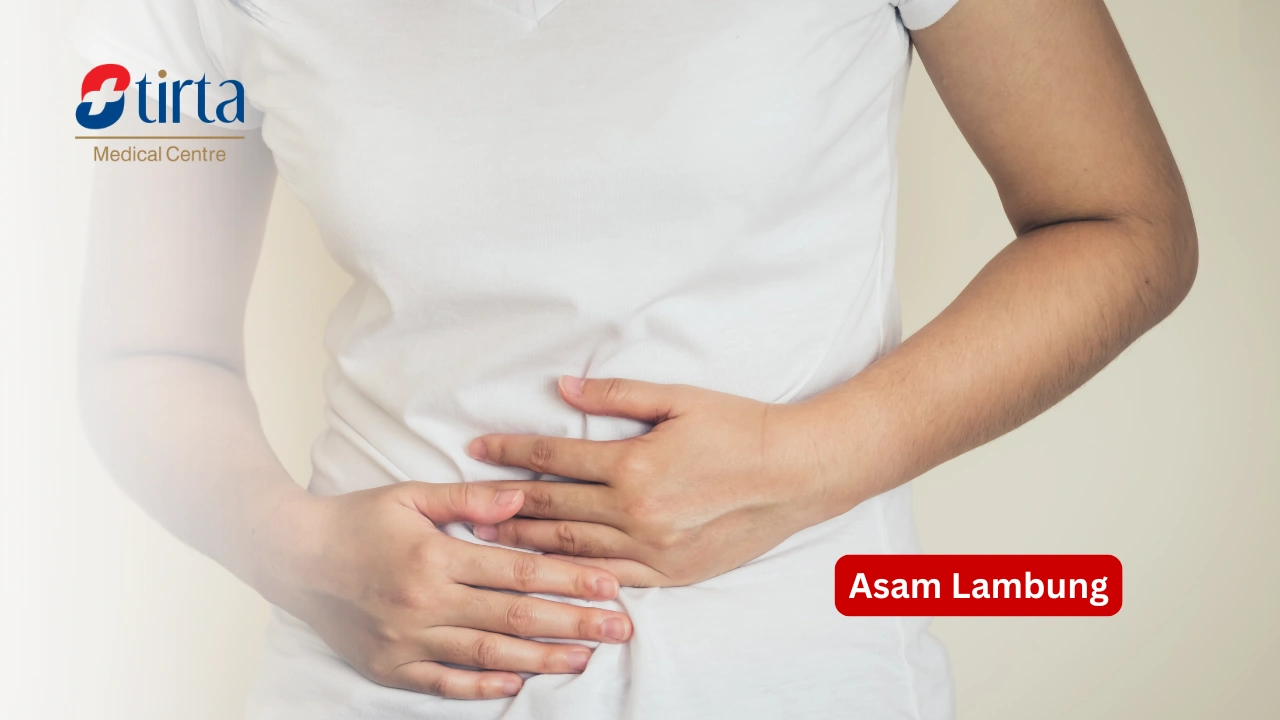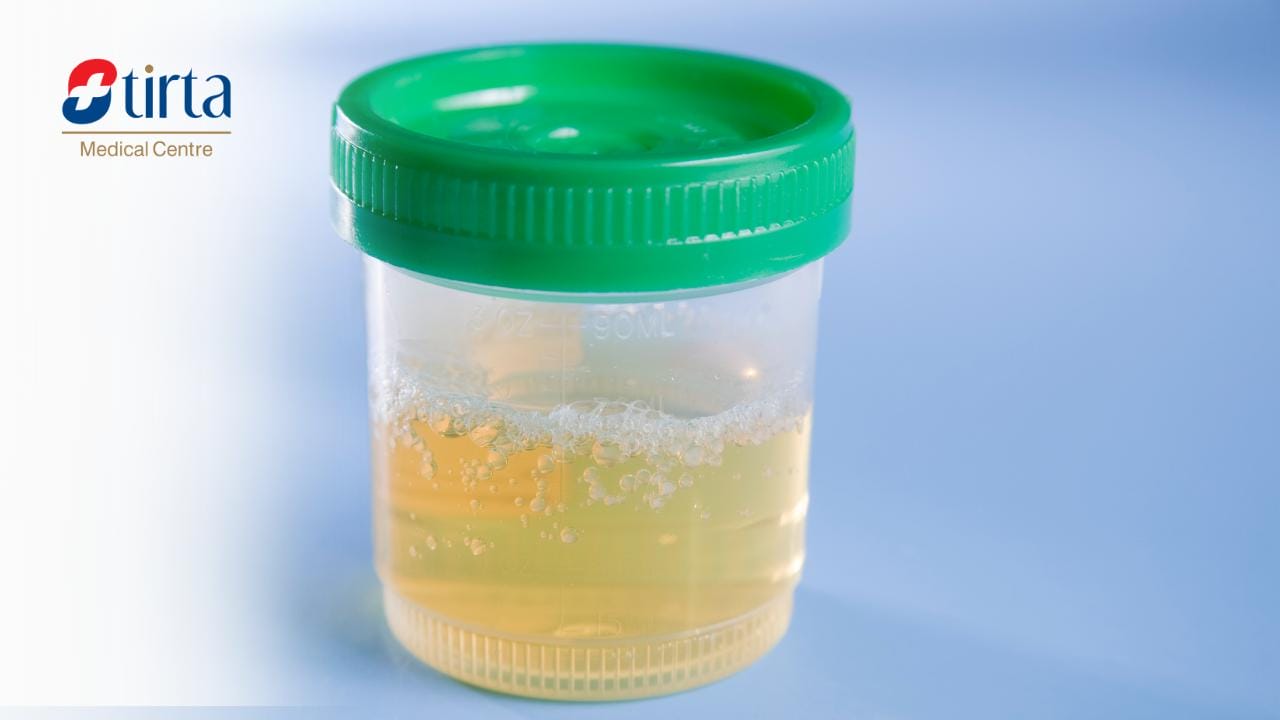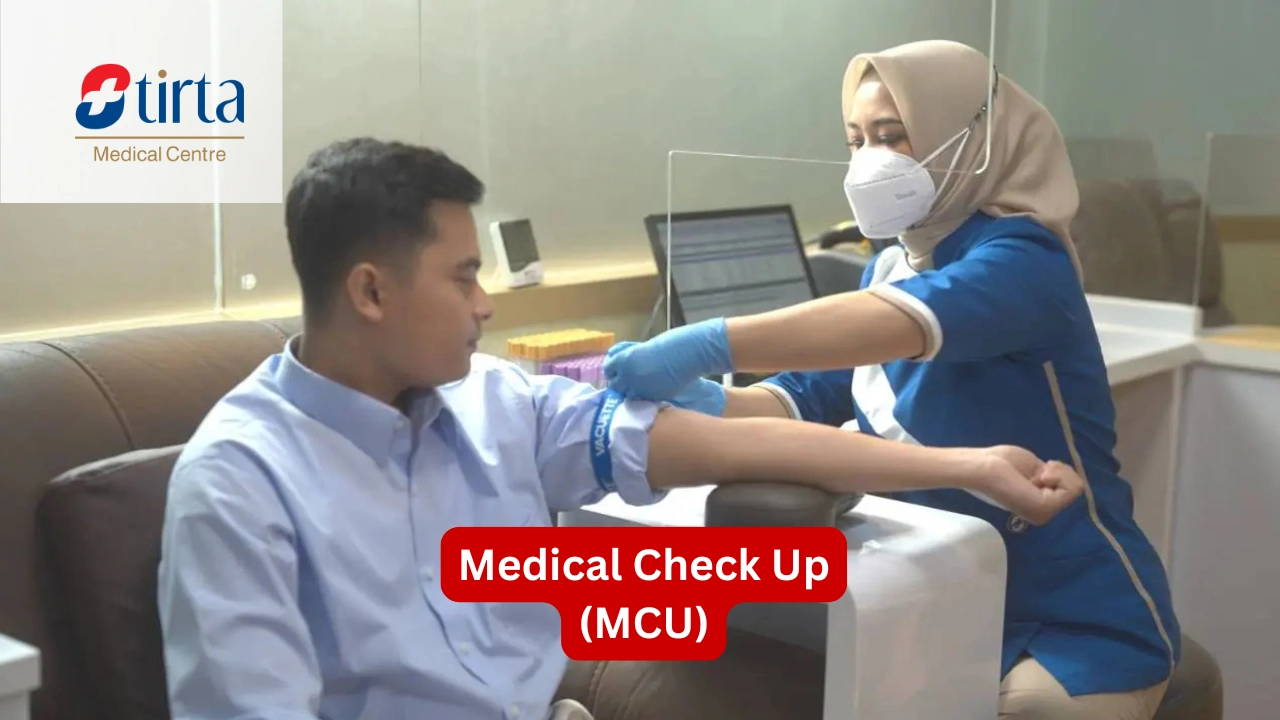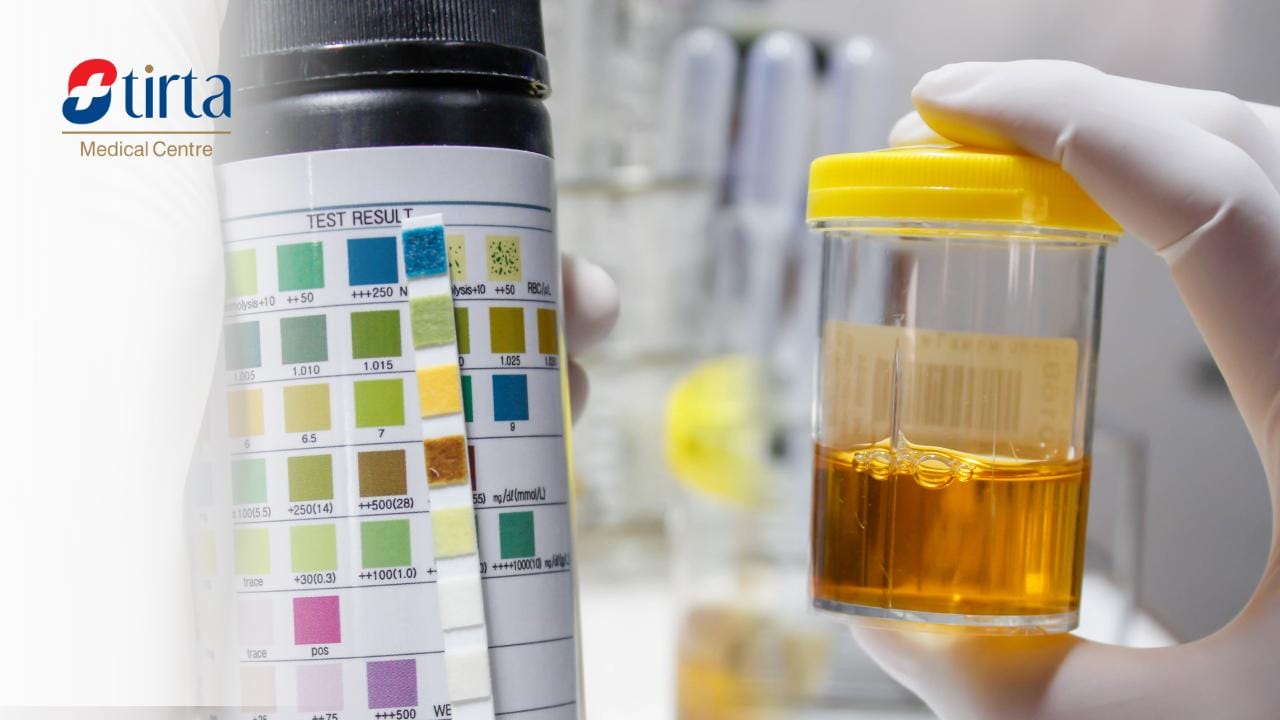A cholesterol test is an important step in detecting the risk of cardiovascular diseases and maintaining heart health. This test measures the level of fats in the blood that can affect the health of blood vessels and the heart.
Types of Cholesterol Test
There are four main types of cholesterol tests that help assess the fat profile in the blood and evaluate the risk of heart disease.
1. LDL Cholesterol Test
The Low-Density Lipoprotein (LDL) test measures the level of “bad” cholesterol that can form plaque in the arteries.
An optimal LDL cholesterol level is below 100 mg/dL, while a value between 100-129 mg/dL is still considered near optimal.
Levels of 130-159 mg/dL are high, while values above 160 mg/dL are very high and need special attention.
2. HDL Cholesterol Test
High-Density Lipoprotein (HDL) or “good” cholesterol plays an important role in transporting bad cholesterol back to the liver for processing.
A healthy HDL cholesterol level is above 40 mg/dL for men and above 50 mg/dL for women. A value of 60 mg/dL or more provides optimal protection against heart disease.
3. Total Cholesterol Test
This test gives an overall picture of the fats in the blood. The normal total cholesterol level is below 200 mg/dL. A level of 200-239 mg/dL is borderline high, and 240 mg/dL or higher is considered high.
4. Triglyceride Check
Triglycerides are a type of fat derived from food and the body’s synthesis. Normal triglyceride levels are below 150 mg/dL. Levels between 150-199 mg/dL are considered borderline high, and levels above 200 mg/dL are classified as high.
Benefits of Cholesterol Test
Cholesterol tests provide several important benefits:
- Detecting cardiovascular disease risk early before symptoms appear
- Helping doctors evaluate the level of risk for heart and blood vessel diseases
- Providing a basis for planning appropriate health management programs
- Monitoring the effectiveness of treatment and lifestyle changes
Who Should Get a Cholesterol Test?
According to the recommendations of the National Heart, Lung, and Blood Institute (NHLBI), cholesterol testing should be performed by:
- Children aged 9–11 years for initial screening
- Adults every 5 years for routine testing
- Men aged 45–65 years and women aged 55–65 years every 1-2 years
- Individuals over 65 years old annually
More frequent testing is needed for individuals with:
- A family history of high cholesterol
- Coronary artery disease
- Ongoing cholesterol-lowering treatment
- High cardiovascular disease risk factors
Cholesterol Test Procedure
Cholesterol level tests are conducted through blood sample collection, which requires special preparation and standard procedures to ensure accurate results.
– Preparing for a Cholesterol Test
Before undergoing a cholesterol test, the following preparations are necessary:
- Fast for 10–12 hours before the blood sample is taken.
- Drinking plain water is allowed during the fasting period.
- Avoid consuming alcohol 24 hours before the test.
- Inform the clinic staff about any medications you are currently taking.
– How to Check Cholesterol
Cholesterol testing is done by collecting a blood sample through a vein. Here’s how the cholesterol check is performed:
- The arm area is cleaned with antiseptic.
- A tourniquet is applied to the upper arm to help visualize the veins.
- A needle is inserted to collect the blood sample.
- After the blood is drawn, the injection site is covered with a bandage.
Cholesterol Check Prices at Tirta Medical Centre
Tirta Medical Centre (TMC) is the best Medical Check Up Clinic in Indonesia. TMC provides cholesterol testing services at competitive rates, making it accessible for everyone. Below are the cholesterol check prices at TMC:
- Total Cholesterol Test Price: Rp60,000
- Triglyceride Test Price: Rp60,000
- HDL Cholesterol Test Price: Rp65,000
- LDL Cholesterol Test Price: Rp95,000
- Cholesterol Test Package (Total, HDL, LDL, TG): Rp250,000
Note: Prices may change at any time. You can contact us for the latest update on cholesterol check costs or make an online reservation here:
TMC has over 30 branches across Indonesia with high-standard and trusted laboratory.
What to Do if Your Cholesterol Test Results Are High
If the test results show high cholesterol levels, here are the steps to take in order to lower cholesterol:
– Modify Your Diet
- Consume high-fiber foods such as oats, beans, and vegetables.
- Limit intake of saturated fats and trans fats by reducing processed food consumption.
- Choose healthy proteins such as beans, lean meats, and fish.
- Opt for low-fat dairy products
– Increase Physical Activity
- Perform moderate physical activity for at least 30 minutes, 5 times a week
- Choose aerobic activities such as walking, swimming, or cycling.
– Lifestyle Changes
- Maintain an ideal weight or lose weight if necessary
- Quit smoking as it can lower HDL (good cholesterol).
- Limit alcohol consumption.
- Cook more meals at home to control the ingredients used.
– Consume Healthy Fats
- Choose plant-based oils such as canola oil or olive oil.
- Eat foods rich in omega-3s, such as salmon and sardines.
- Add avocado and nuts to your daily diet.
If lifestyle changes are not enough to lower cholesterol after 3–6 months, consult a doctor for an evaluation and potential cholesterol-lowering medication.
References:
- Journal Ganesha University. Accessed in 2024. Analysis of Total Cholesterol Levels in Blood of Patients Diagnosed with Cardiovascular Diseases: https://ejournal.undiksha.ac.id/index.php/IJACR/article/download/28709/16305/57173
- E-Journal Poltekkes Kemenkes Denpasar. Accessed in 2024. Overview of Total Cholesterol Levels in the Elderly at Puskesmas I Denpasar Selatan: https://ejournal.poltekkes-denpasar.ac.id/index.php/M/article/download/1526/702
- Hermina Hospitals. Accessed in 2024. Bad Effects of Cholesterol on Body Health: https://www.herminahospitals.com/en/articles/dampak-buruk-kolestrol-bagi-kesehatan-tubuh-a26ca019-94bc-44a3-9ff6-95d223333c6c
- Siloam Hospitals. Accessed in 2024. Understanding the Benefits, Procedures, and Types of Cholesterol Tests: https://www.siloamhospitals.com/en/informasi-siloam/artikel/pemeriksaan-kolesterol
- Promkes Kemkes RI. Accessed in 2024. Cholesterol Check Guide: https://promkes.kemkes.go.id/pub/files/files54662.%20Cek%20Kesehatan%20Secara%20Rutin_285x285mm.pdf
- American Heart Association. Accessed in 2024. What is Cholesterol?: https://www.heart.org/en/health-topics/cholesterol/about-cholesterol

